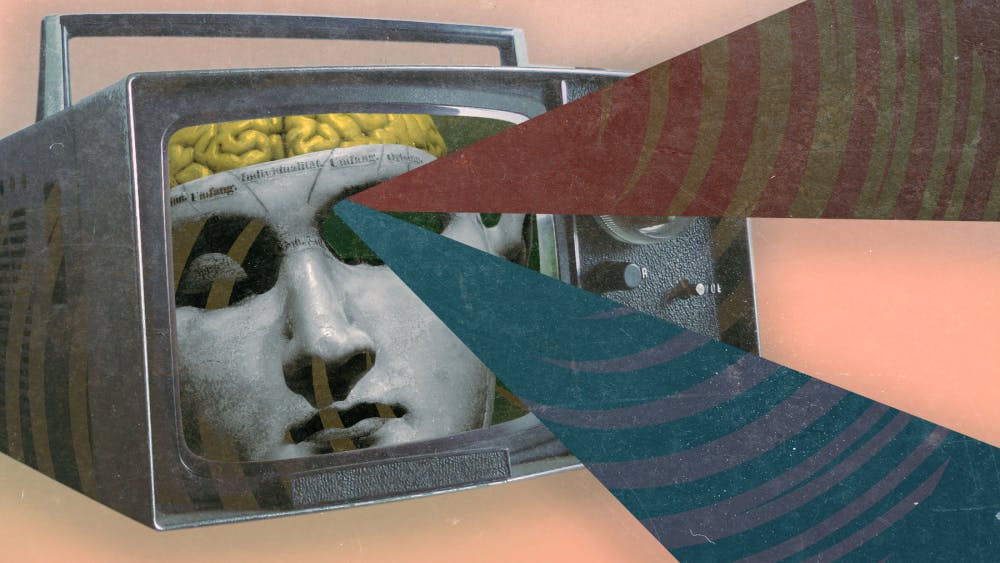
Film adaptations of books are always a little bit nerve-wracking. And for good reason: it's nearly impossible to expect one director's interpretation of a novel to live up to the amazing characters, settings and situations we've created in our imaginations.
But there's always the possibility: maybe this will be the one that gets it right.
So I was equal parts ecstatic and petrified to see "Gone Girl." Featuring Ben Affleck, Rosamund Pike and Neil Patrick Harris in a screenplay written by Gone Girl author herself Gillian Flynn, the film sounded thrilling. But remembering the pain and suffering that I'd experienced after previous film adaptations of books ("Cloud Atlas," anyone?) was reason enough to fear the experience.
And that's why after leaving the movie, I was shocked that I didn't feel ... more. "Gone Girl" had a lot of great elements to it, but it just didn't hit me in the core the way the book did. I wasn't angry with the movie, and I wasn't thrilled with it. I was just ... meh.
Directed by David Fincher ("Se7en," "Fight Club"), the film tells the story of Nick (Affleck) and Amy (Pike) Dunne, a New York-turned-Missouri couple whose marriage is showing the cracks of age. The morning of their fifth anniversary, Nick comes home to find his living room in disarray and his wife gone – and the search for Amy evolves into a media frenzy as the signs increasingly point towards Nick.
It's a brilliantly constructed book, beginning as your average "whodunit" and evolving into a story that teems with hints of psychology, mystery, memory and a commentary on the tumultuous nature of relationships.
But ultimately, what made the book so enthralling was that you had no idea what was going to happen next. It's not the kind of book that's so deeply moving or resonant you can read it again and again and always find new things to appreciate. The first time through, it's a rollicking, terrifying ride – but once you know how the story ends, the book has kind of done all it can do.
Knowing what was going to happen next made the movie surprisingly lackluster, which was frustrating, after a book that was so viscerally affecting and such a terrifically engrossing page-turner.
Ultimately, the psychological aspects of the story, which were what really made the book shine and differentiated it from your run-of-the-mill detective story, came up kind of flat in the film. There's only so much you can do with the narrations (which were bordering on excessive, anyway).
That being said, the movie has a lot going for it. Newcomers to the story will surely appreciate the twists and turns that the story takes, trying to understand just what went wrong in Amy's and Nick's marriage and the roles that these different characters play in their lives.
Pike is phenomenal in her role as Amy, excellently taking you through all the different versions of Amy we come to know. We love her, we hate her, we feel sorry for her, we feel scared of her – no matter how we feel, we believe her.
Harris does his very best with his first mainstream dramatic role in years, but you can always see a glimmer of Barney Stinson peeking out from behind the façade of Desi Collins.
Cinematographically, the film creates the emptiness and desolation of a small Midwestern town amazingly. There's a downtown, but it's not cute and charming – it's empty and depressing. The stylization of the scenes in New York (where Amy and Nick first meet and fall in love) versus the scenes in Missouri plays to the devolution of their relationship perfectly, a marker of the shift from liveliness and love to boredom and frustration.
And it was beyond refreshing to watch a film adaptation of a book that stayed true to the story. Thanks in large part to Flynn's role in the film, there were no moments of "Why did they forget that?"
In fact, that's why the movie is so long; it keeps in all those beautiful little lines from the book, making sure we understand the characters' motivations and situations.
Word on the street had been that Flynn wrote a different ending for the film than for the book, with the intent of keeping the audience guessing. And that prospect was what kept me intrigued the whole movie – how could she possibly end the story differently? The general consensus seems to be that the book ending was "slapped in," and I was beyond excited to see where else the story would end. But that was false advertising: the film ends exactly the same way as the book, on a note that both makes the most logical sense and frustrates the audience beyond belief.
This is certainly a difficult film to talk about without giving anything away, and as I've said, the whole fun of the story is not knowing the ending. So if you have no idea what direction the story ends up taking, see "Gone Girl." It's a hell of a ride. In fact, I'm kind of mad that I couldn't discover the story all over again. The film succeeds on so many levels, that to a newcomer to the story, it's sure to be a winner.
I guess that is all you can really ask for in a film adaptation. Accuracy, a tone that rings true to the book and some exceptional acting. And on all of those notes, "Gone Girl" definitely succeeded.
– By Emelia Fredlick, Arts & Entertainment Editor
'Gone Girl' Honors Book, Loses Sparkle
Photo courtesy of 20th Century Fox







